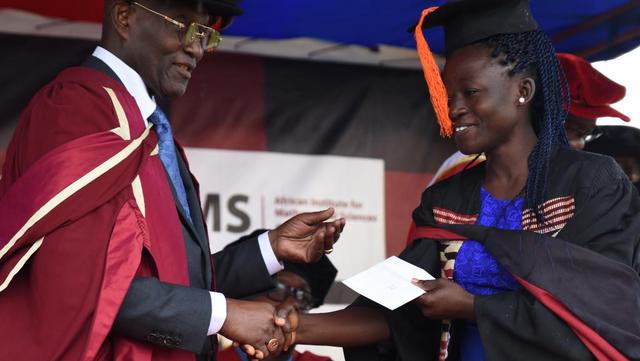
[ad_1]
From our correspondent in Accra
Google's announcement was succinct but had a major impact on the African continent. By the end of the year, a research center on artificial intelligence will open in Accra, Ghana. After cities like New York, Paris, Tokyo or Beijing, the future Ghanaian laboratory will be the first in Africa.
Senegalese Moustapha Cissé will be in charge. For more than a decade, Google has opened offices in Africa and supports 100,000 developers and more than 60 technology start-ups in the Launchpad Accelerator Africa program. But why choose Ghana precisely for this future laboratory? In addition to the stability of this country in West Africa, its education system appealed to the Mountain View company.
Biriwa is a small fishing port a hundred kilometers west of Accra. Aims, the African Institute of Mathematical Sciences, a local Google partner, has been in business for six years. This nursery for future geniuses trains each year, at zero costs, about 40 students from the continent, including a third of Ghanaians.
" The Future Einstein "
Ines Birimahire, a 26-year-old Rwandan student, has just graduated after ten months of training. " In Rwanda, it is widely believed that investing in technology will participate in development she explains. That's why I wanted to apply here in Aims, Ghana. But this year has been tough, classes are very intensive and we have learned a lot. It's a challenge but we did it
Seth Afari-Boateng, also a Ghanaian and a graduate of Aims, confirms: " This is a lot of knowledge that we receive in one fell swoop, computer science, mathematics, several fields of physical. Aims is a bridge between continents, with the best speakers from the United States, Europe, Asia. All we have to do is focus on our studies and try to become the future Einstein. The comparison with the father of the theory of relativity is not insignificant. On the walls of the Institute, the posters with the image of Albert Einstein inspire future researchers.
Aims offers innovative training, which differs from classical universities. Its president, Edward Ayensu, even says " embarrassed to see that for decades, universities have not had a single doctoral student in mathematics. Most teachers do not know how to teach mathematics. Aims was designed to break that.
The partnership with Google should pay off. This is the ambition of its president, who continues: " Google has the tools. We are the first generation of students who will in turn be the teachers of tomorrow who will educate the African population. It's only a beginning. We, the developing countries, are lagging far behind. But we have one advantage: we do not have to develop all these software. Everything has been done. What France has taken a hundred years to realize, we will do in five .
Do not Miss the Technological Revolution
Because it is a long-term project that the Institute is aiming for by partnering with Google. Ghana's first doctoral student in mathematics, Prince Osei, who took part in the creation of Aims, has a firm stance: " Africa has missed all revolutions, like the industrial revolution. But for the technological revolution, we will be ready. The original idea of Aims was to create a center in Africa for Africans. For the mathematician, artificial intelligence must develop in Africa to respond to local issues.
Google has announced that the future lab will focus on health, education and agriculture. " Take the example of breast cancer. The case of African women is not comparable with the rest of the world because here we have no data, nothing is grieving Prince Osei. It is time for research to address these conditions. Even everyday. We have had floods in Accra recently that caused damage. Floods come back every rainy season. How is it that we have not yet put at least one system capable of predicting meteorology and studying the water level ?
Google's future research center, which has already started its recruitment, will use these "Einstein in the making" for technological innovations to serve concrete problems. And internet giants continue to bet on training. Google and Facebook have partnered to finance for three years, to the tune of 8 million dollars, a new master in computer science, which will be inaugurated in September 2018 in the Aims center of Kigali, Rwanda, then Aims Accra in 2019.
RFI
Source link